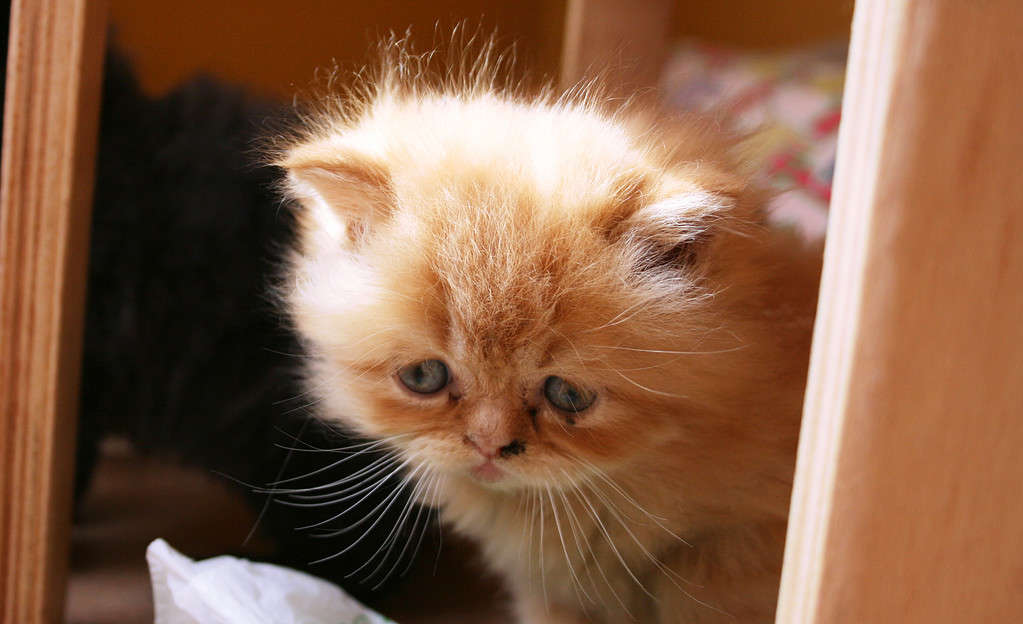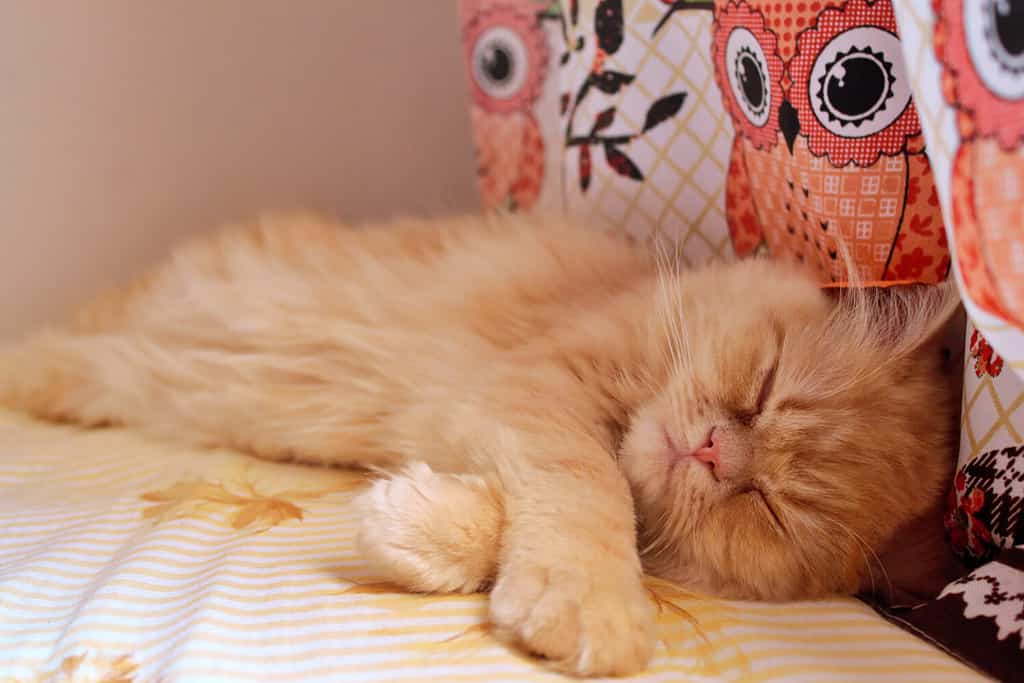Is there anything in the world more precious than a little kitten? Those of you who have been thinking about adding one to your family might be researching different breeds and weighing their pros and cons. The Persian cat is a breed that has so many wonderful qualities; their less desirable traits are dwarfed in comparison! These cats are undeniably beautiful and have a rich history that spans hundreds of years. Today, we discuss the Persian breed and provide some tips for adopting to help make the process go much smoother.
An Introduction to the Persian Breed

The Persian is one of the oldest pedigreed breeds.
©Valerio Pardi/Shutterstock.com
Persian cats make excellent house pets and do very well in homes with small children and other animals. They are docile and affectionate and love to cozy up on the couch next to their owners more than anything else in the world. Despite all these wonderful qualities, these cats can be a little labor-intensive. Persians have long, thick fur that their owners must brush on a regular basis. In addition, it’s important to clean their ears, trim their nails, and keep up with their dental hygiene as well. Although this may seem daunting at first, grooming your cat will get easier with each passing session. If you feel that this is a bit overwhelming for you, don’t worry. Taking your Persian to the cat salon is relatively affordable and each visit only costs about $50.
History of the Persian Cat

The origins of the Persian cat are hotly debated.
©kitty.green66 / CC BY-SA 2.0 – License
There’s no denying that Persian cats have a regal aura about them. Persian cats have been favored by the wealthy throughout history, and many have been owned by royalty and celebrities. According to ASPCA, “As one of the oldest cat breeds, Persian cats can be traced all the way back to the 1600s. While there are question marks about where they came from, they’re believed to have originated in Mesopotamia, later called Persia (hence the name), which is now modern-day Iran. It’s said that they were smuggled out of Persia by European explorers in the 17th century.” Since then, these cats have become more widely accessible and have exploded in popularity.
The Importance of Finding a Reputable Persian Breeder

Unlike other breeds, Persian kittens tend to be lazy and cuddly even when they’re young.
©Fernando Ruiz Altamirano from San Pedro de la Paz, Chile / CC BY 2.0 – License
Many people associate the Persian cat with the height of luxury. However, when compared to other cat breeds, the Persian can be surprisingly affordable. Depending on your location and the pedigree of the cat, their price will fall somewhere between $700 and $3,000. If you happen to find a Persian for any less than this range, exercise caution. Unless the cat you found is from a shelter or rescue, a low price can be a red flag. Although the inexpensive price can be alluring, this is often a sign that the breeder is unethical. Backyard breeders often don’t perform genetic testing on their animals. This means that the animals you purchase have a higher chance of being affected by congenital disorders. These are painful for your animal and expensive to treat, so you’ll want to avoid this at all costs.
How to Properly Vet Breeders

Persian cats aren’t as vocal as other cats, so if you like to have a quiet home, this cat is for you.
©kitty.green66 / CC BY-SA 2.0 – License
Although you might wind up paying more to purchase a Persian kitten from a reputable breeder, the cost will be worth it. Unlike backyard breeders, ethical breeders often offer a health guarantee on their animals. This means that the breeder has done the proper genetic testing. Because of this, they can promise you that the animal you’re purchasing is in good health. If your Persian receives a diagnosis that’s covered by the agreement, you’ll be able to get your money back or receive a replacement. Word-of-mouth recommendations are the best way to gauge a breeder’s reputation. Try joining local groups on social media centered around Persian cats. Once you join, you can reach out to owners and ask them where they purchased their kittens. Try to avoid new breeders or poorly rated ones. Don’t rush this process, as it’s crucial to your kitten’s overall well-being!
How to Prepare

Persian cats love to nap, and many can sleep for 16 to 20 hours per day!
©Lucas Spengler/Shutterstock.com
If this is the first cat in your house, there are certain things you’ll need to purchase before bringing your new baby home. Some of these items are essentials like food and water bowls, a collar, toys, and a traveling crate. In addition, microchipping your Persian kitten should be strongly considered. If your cat sneaks out of your home and becomes lost, this will provide a safety net. Anyone who finds your cat can bring them to a veterinarian and scan their chip to get your contact information, and the two of you can easily reunite.
Final Thoughts
If you’ve set your heart on adopting a Persian kitten, you can expect to have a loyal companion like no other. On average, these cats live to be between 10 and 17 years old, with some living into their 20s. Because of this, it’s important to acknowledge that this animal is a long-term commitment. Be sure you’re ready financially and emotionally to support your Persian throughout their whole life. In return, they’ll give you their whole heart for as long as they’re in your care.
The photo featured at the top of this post is © ANURAK PONGPATIMET/Shutterstock.com
Thank you for reading! Have some feedback for us? Contact the AZ Animals editorial team.






